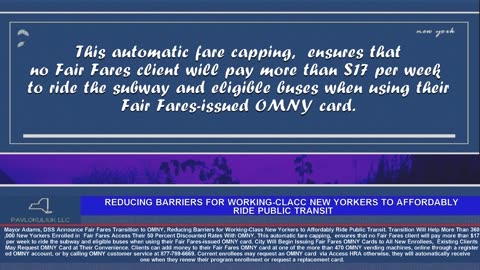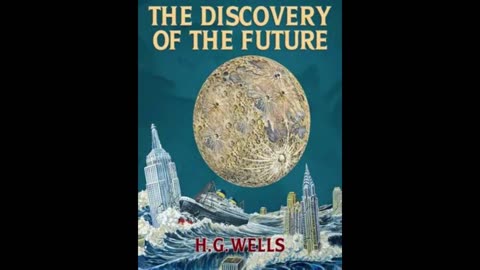-
Jay Dyer's Funniest Ex-Girlfriend Story Compilation
 56raysA hilarious compilation of Jay Dyer's most memorable ex-girlfriend stories is presented. The audience's interest will be captured by the sheer entertainment and relatable mishaps that are explored.18 views
56raysA hilarious compilation of Jay Dyer's most memorable ex-girlfriend stories is presented. The audience's interest will be captured by the sheer entertainment and relatable mishaps that are explored.18 views -
Species #48
 SkunkHollowRoseGardensReal time video of Michigan Wastelands Flower Authority agents acquiring "better" reconnaissance video of yet to be identified Species #48. This needs to go to Flower Bed Security: Main Office now.22 views
SkunkHollowRoseGardensReal time video of Michigan Wastelands Flower Authority agents acquiring "better" reconnaissance video of yet to be identified Species #48. This needs to go to Flower Bed Security: Main Office now.22 views -
-
-
Reducing Barriers for Working-Class New Yorkers to Affordably Ride Public Transit
 naturefourseasonsMayor Adams, DSS Announce Fair Fares Transition to OMNY, Reducing Barriers for Working-Class New Yorkers to Affordably Ride Public Transit. Transition Will Help More Than 360,000 New Yorkers Enrolled in Fair Fares Access Their 50 Percent Discounted Rates With OMNY. This automatic fare capping, ensures that no Fair Fares client will pay more than $17 per week to ride the subway and eligible buses when using their Fair Fares-issued OMNY card. City Will Begin Issuing Fair Fares OMNY Cards to All New Enrollees, Existing Clients May Request OMNY Card at Their Convenience. Clients can add money to their Fair Fares OMNY card at one of the more than 470 OMNY vending machines, online through a registered OMNY account, or by calling OMNY customer service at 877-789-6669. Current enrollees may request an OMNY card via Access HRA otherwise, they will automatically receive one when they renew their program enrollment or request a replacement card. The Fair Fares discount is available to New Yorkers between the ages of 18 and 64 years old, regardless of immigration status, whose income falls at or below 145 percent of the Federal Poverty Level. New Yorkers can visit the Fair Fares website to check if they are eligible for the program, as well as apply online and begin saving 50 percent on subway and eligible bus fares or MTA Access-A-Ride paratransit trips. More information https://www.nyc.gov/office-of-the-mayor/news/109-25/mayor-adams-dss-fair-fares-transition-omny-reducing-barriers-working-class-new We will be glad and grateful if you support our channel https://buy.stripe.com/dR65mj6ireXraLScMM And this is the previous news "The new trains will provide service on the New Haven Line to Penn Station in New York" https://rumble.com/v6p78to-the-new-trains-will-provide-service-on-the-new-haven-line-to-penn-station-i.html176 views 9 comments
naturefourseasonsMayor Adams, DSS Announce Fair Fares Transition to OMNY, Reducing Barriers for Working-Class New Yorkers to Affordably Ride Public Transit. Transition Will Help More Than 360,000 New Yorkers Enrolled in Fair Fares Access Their 50 Percent Discounted Rates With OMNY. This automatic fare capping, ensures that no Fair Fares client will pay more than $17 per week to ride the subway and eligible buses when using their Fair Fares-issued OMNY card. City Will Begin Issuing Fair Fares OMNY Cards to All New Enrollees, Existing Clients May Request OMNY Card at Their Convenience. Clients can add money to their Fair Fares OMNY card at one of the more than 470 OMNY vending machines, online through a registered OMNY account, or by calling OMNY customer service at 877-789-6669. Current enrollees may request an OMNY card via Access HRA otherwise, they will automatically receive one when they renew their program enrollment or request a replacement card. The Fair Fares discount is available to New Yorkers between the ages of 18 and 64 years old, regardless of immigration status, whose income falls at or below 145 percent of the Federal Poverty Level. New Yorkers can visit the Fair Fares website to check if they are eligible for the program, as well as apply online and begin saving 50 percent on subway and eligible bus fares or MTA Access-A-Ride paratransit trips. More information https://www.nyc.gov/office-of-the-mayor/news/109-25/mayor-adams-dss-fair-fares-transition-omny-reducing-barriers-working-class-new We will be glad and grateful if you support our channel https://buy.stripe.com/dR65mj6ireXraLScMM And this is the previous news "The new trains will provide service on the New Haven Line to Penn Station in New York" https://rumble.com/v6p78to-the-new-trains-will-provide-service-on-the-new-haven-line-to-penn-station-i.html176 views 9 comments -
The Discovery of the Future by H. G. Wells (1902)
 Deus Meum Que JusThe Discovery of the Future by H. G. Wells (1902) is a groundbreaking lecture-turned-essay in which Wells lays out his vision for how humanity can begin to study, predict, and shape the future through the use of science, reason, and imagination. Delivered to the Royal Institution, the work challenges the then-common belief that the future was unknowable or solely the domain of religion and superstition. Wells divides thinkers into two types: the submissive, who accept the future as unknowable fate, and the creative, who believe it can be understood and influenced. He firmly aligns with the latter, arguing that just as science has made the natural world more predictable, it can also uncover the patterns of human behavior, social development, and technological change. Rather than waiting passively, Wells calls for the rise of a forward-looking mindset, one that embraces education, data, and long-term thinking. He sees this as not just possible, but essential—if humanity hopes to avoid chaos and guide itself toward progress. The Discovery of the Future is a visionary and philosophical work that marks one of the earliest formal arguments for what we now call futures studies or strategic foresight, and it reflects Wells’s enduring faith in science as a tool for human evolution. About the Author: H.G. Wells (Herbert George Wells, 1866-1946) was an English writer, historian, and social commentator, widely regarded as one of the most influential authors of the early 20th century. Best known for his pioneering works of science fiction, such as The War of the Worlds, The Time Machine, and The Invisible Man, Wells also wrote extensively on social, political, and philosophical topics. Wells was a committed advocate for social reform and was deeply involved in the intellectual and political debates of his time. He was a member of the Fabian Society, a British socialist organization that aimed to advance the principles of democratic socialism through gradual reforms rather than revolution. His interest in social issues and his belief in the power of science and education to improve society are reflected in many of his works, including The Open Conspiracy. Wells was a member of the Fabian Society, a British socialist organization advocating for gradual, democratic reforms rather than revolutionary change. He engaged in political debates and was known for his radical views on social reform, class inequality, and the future of human society. Although he supported socialism, he was often critical of political parties and institutions, which he felt were too slow or corrupt to bring about real change. Wells’ personal life was often as controversial as his writings. He had multiple affairs, including one with feminist and author Amber Reeves, which heavily influenced The New Machiavelli. The affair strained his relationship with the Fabians, and this personal experience is mirrored in the novel’s exploration of sexual morality, personal ambition, and political pragmatism. H.G. Wells is widely regarded as one of the founding fathers of science fiction, but his contributions to literature extend far beyond that genre. His explorations of political, social, and philosophical issues influenced not only his contemporaries but also future generations of writers and thinkers. His predictions about future technologies, warfare, and society were often uncannily accurate. Wells was deeply influenced by Charles Darwin’s theory of evolution, which shaped his views on human nature, society, and progress. His writing style combined a fascination with science and the possibilities of the future with a deep skepticism of human nature and institutions. His works often reflect his belief that human progress requires a balance between scientific advancement and ethical responsibility.720 views
Deus Meum Que JusThe Discovery of the Future by H. G. Wells (1902) is a groundbreaking lecture-turned-essay in which Wells lays out his vision for how humanity can begin to study, predict, and shape the future through the use of science, reason, and imagination. Delivered to the Royal Institution, the work challenges the then-common belief that the future was unknowable or solely the domain of religion and superstition. Wells divides thinkers into two types: the submissive, who accept the future as unknowable fate, and the creative, who believe it can be understood and influenced. He firmly aligns with the latter, arguing that just as science has made the natural world more predictable, it can also uncover the patterns of human behavior, social development, and technological change. Rather than waiting passively, Wells calls for the rise of a forward-looking mindset, one that embraces education, data, and long-term thinking. He sees this as not just possible, but essential—if humanity hopes to avoid chaos and guide itself toward progress. The Discovery of the Future is a visionary and philosophical work that marks one of the earliest formal arguments for what we now call futures studies or strategic foresight, and it reflects Wells’s enduring faith in science as a tool for human evolution. About the Author: H.G. Wells (Herbert George Wells, 1866-1946) was an English writer, historian, and social commentator, widely regarded as one of the most influential authors of the early 20th century. Best known for his pioneering works of science fiction, such as The War of the Worlds, The Time Machine, and The Invisible Man, Wells also wrote extensively on social, political, and philosophical topics. Wells was a committed advocate for social reform and was deeply involved in the intellectual and political debates of his time. He was a member of the Fabian Society, a British socialist organization that aimed to advance the principles of democratic socialism through gradual reforms rather than revolution. His interest in social issues and his belief in the power of science and education to improve society are reflected in many of his works, including The Open Conspiracy. Wells was a member of the Fabian Society, a British socialist organization advocating for gradual, democratic reforms rather than revolutionary change. He engaged in political debates and was known for his radical views on social reform, class inequality, and the future of human society. Although he supported socialism, he was often critical of political parties and institutions, which he felt were too slow or corrupt to bring about real change. Wells’ personal life was often as controversial as his writings. He had multiple affairs, including one with feminist and author Amber Reeves, which heavily influenced The New Machiavelli. The affair strained his relationship with the Fabians, and this personal experience is mirrored in the novel’s exploration of sexual morality, personal ambition, and political pragmatism. H.G. Wells is widely regarded as one of the founding fathers of science fiction, but his contributions to literature extend far beyond that genre. His explorations of political, social, and philosophical issues influenced not only his contemporaries but also future generations of writers and thinkers. His predictions about future technologies, warfare, and society were often uncannily accurate. Wells was deeply influenced by Charles Darwin’s theory of evolution, which shaped his views on human nature, society, and progress. His writing style combined a fascination with science and the possibilities of the future with a deep skepticism of human nature and institutions. His works often reflect his belief that human progress requires a balance between scientific advancement and ethical responsibility.720 views







